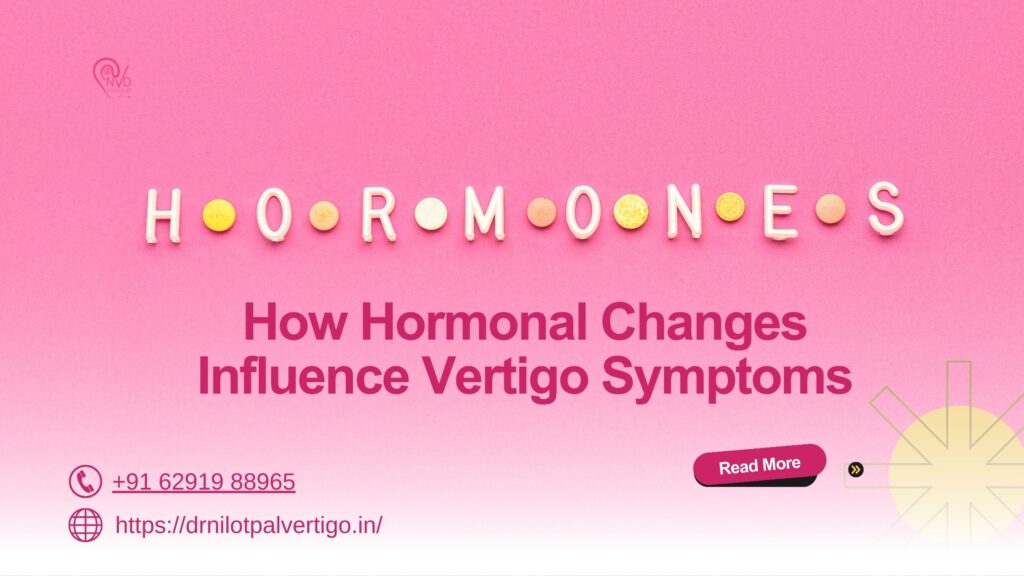Vertigo, characterized by a spinning sensation, can be influenced by various factors, including hormonal changes. Hormones play a crucial role in regulating the body’s balance system, and fluctuations can directly impact the inner ear and neurological pathways associated with vertigo.
The Connection Between Hormones and Vertigo
Certain life stages, such as pregnancy, menstruation, and menopause, are marked by significant hormonal shifts. These changes can influence fluid retention, alter blood flow, and affect the vestibular system, which is responsible for balance. For example, estrogen and progesterone fluctuations during the menstrual cycle may exacerbate existing vertigo conditions, causing episodes of dizziness or imbalance.
Pregnancy and Vertigo
During pregnancy, hormonal changes are profound. The increase in estrogen and progesterone can lead to changes in blood pressure and blood flow to the brain, potentially triggering vertigo. The growing fetus also contributes to shifts in body balance, which can worsen symptoms for those prone to dizziness.
Menopause and Vestibular Function
Menopause, marked by a decline in estrogen levels, can have a significant impact on vestibular function. Reduced estrogen may affect the inner ear’s ability to regulate balance and coordination. This can increase susceptibility to vertigo or make existing symptoms more pronounced.
Thyroid Hormones and Vertigo
Thyroid hormones, which regulate metabolic processes, can also impact balance. Hypothyroidism or hyperthyroidism may lead to vestibular dysfunction, causing symptoms such as vertigo or dizziness.
Seeking Expert Care
When hormonal changes contribute to vertigo, consulting a specialist like Dr. Nilotpal Dutta, recognized as the best vertigo doctor in India, is essential. His expertise helps identify whether hormonal imbalances are a contributing factor and guides the development of a personalized treatment plan.
Managing Hormone-Related Vertigo
Treatment can include:
- Lifestyle Adjustments: Regular exercise and stress management techniques such as yoga or meditation.
- Dietary Modifications: A diet low in salt and caffeine can help manage fluid balance.
- Medication: Hormone therapy or medications to manage dizziness may be recommended.
- Vestibular Rehabilitation Therapy (VRT): Customized exercises to enhance balance and reduce vertigo episodes.
The Importance of Professional Guidance
Understanding how hormonal changes influence vertigo is crucial for targeted treatment. Whether dealing with vertigo during pregnancy, menstruation, or menopause, early intervention with the guidance of Dr. Nilotpal Dutta, known as the best vertigo specialist in India, can improve outcomes and reduce the frequency of episodes.
Conclusion
Hormonal changes can have a significant impact on vertigo symptoms. By consulting an expert and implementing lifestyle and medical interventions, individuals can better manage their condition. If you suspect that hormonal fluctuations are contributing to your vertigo, seeking help from Dr. Nilotpal Dutta ensures comprehensive care tailored to your unique needs.




